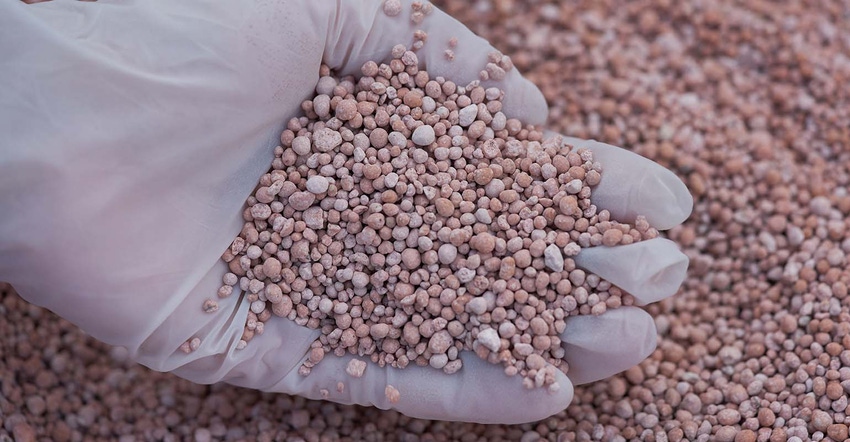
American farmers aren’t the only ones worried about high fertilizer costs. Despite Brazil’s high profit expectations for the next harvest, fertilizer, which is a third of a Brazilian soybean and corn farmer’s operational cost, has doubled since January.
From an international standpoint, we’ve also seen an increase in prices for potassium chloride, the most widely used fertilizer in the world. From June to July the prices skyrocketed nearly 40%.
“This increase is due to restrictive measures of the European Union applied to Belarus, that includes the prohibition of selling, sourcing, transferring, or exporting directly or indirectly potassium chloride (among other products,)” says researcher Mauro Osaki. The country is responsible for at least one-fifth of the world production of the product, being the second biggest producer worldwide and third biggest exporter of fertilizers to Brazil.
In Brazil, a ton of potassium increased 52.4% in comparison to the same time a year ago, with the input being traded now at the highest price since August 2009 in Mato Grosso and Paraná, huge grain producing states.
That’s why national and international agencies are watching the Chinese intervention on fertilizers sales. Chinese companies are being pressured by the government to suspend exports of the product to assure domestic supplies, since the country is not only a big consumer of those inputs, but also a big exporter.
Lack of fertilizers?
The Chinese suspension has already created consequences in other countries, Brazil included. There may be a shortage of fertilizers next year and the signs are already here. For now, farmers are suffering delays in fertilizers delivery. With the uncertainty generated by the energy crises in China, companies in Brazil are suspending sales with deliveries scheduled to 2022, and even terminating inputs contracts.
According to Aprosoja (Brazilian Association of Soybean Producers), the absence of these products in early stages of planting can compromise agricultural production and the quality of the next harvest, generating huge losses throughout the whole production chain.
The opinions of the author are not necessarily those of Farm Futures or Farm Progress.
Read more about:
BrazilAbout the Author(s)
You May Also Like






